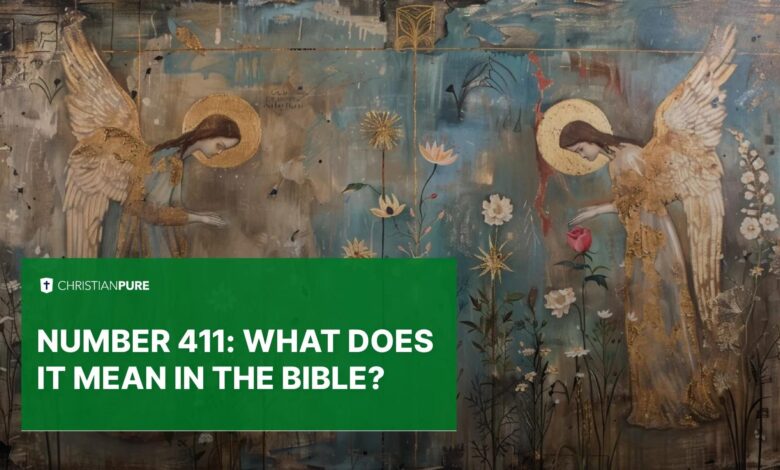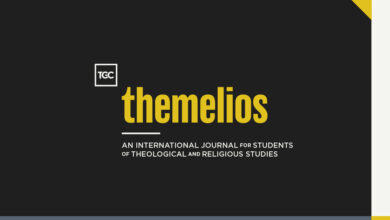Number 411: What does it mean in the Bible?

Does the number 411 appear in the Bible?
As we explore the significance of numbers in Scripture, it’s important to approach this topic with both faith and scholarly understanding. After careful examination of biblical texts and research, I must inform you that the number 411 does not appear explicitly in the Bible as a major numerical reference.
Although the Bible contains many important numbers with symbolic meanings, we must be careful not to impose meanings where they may not exist . I can tell you that biblical numerology is a legitimate field of study, with the Bible itself being described as “a mine of numeric interpretation” . But not every number carries specific theological significance.
Psychologically I understand the human desire to find meaning in specific numbers, especially when seeking divine guidance. This search for patterns and symbols reflects our deep need to connect with divine wisdom . But we must approach such interpretations with spiritual discernment and scholarly rigor.
Instead of focusing on whether 411 appears explicitly, we might consider its component parts: 4 and 11. In biblical numerology, the number 4 often represents creation and the physical world, while 11 can symbolize disorder or incompleteness . But we should be cautious about combining these meanings without clear scriptural support.
I encourage you to focus on the clear messages of Scripture rather than searching for hidden meanings in specific numbers that may not appear in the biblical text. Remember that God’s word is rich with obvious spiritual truths that can guide our faith journey without requiring complex numerical interpretations.
Let us approach the study of numbers in Scripture with humility, recognizing that while they can enhance our understanding, they should not overshadow the primary message of God’s love and salvation through Jesus Christ.
What is the significance of Psalm 41:1 in relation to the number 411?
As we contemplate the connection between Psalm 41:1 and the number 411, we must approach this with both spiritual insight and scholarly caution. Although the number 411 itself does not appear in the Bible, we can explore the significance of Psalm 41:1 and consider how it might relate to the concept of divine guidance often associated with the modern use of “411” as an information number.
Psalm 41:1 reads: “Blessed is he who considers the poor; The Lord will deliver him in time of trouble.” This verse carries powerful spiritual and social implications that resonate deeply with our Christian faith and mission.
Psychologically this psalm speaks to our innate desire for compassion and justice. It reminds us that caring for the less fortunate is not only a moral imperative but also a source of divine blessing. This aligns with the Christian understanding of God’s preferential option for the poor, a concept I have often emphasized in my teachings .
Historically, this psalm has been a source of comfort and inspiration for believers throughout the ages. It reflects the ancient Israelite understanding of the reciprocal relationship between human compassion and divine favor. I can attest to how this principle has shaped social ethics in many Christian societies over the centuries.
Although we cannot draw a direct numerical connection to 411, we can see how Psalm 41:1 provides essential “information” or guidance for Christian living. Just as people might dial 411 for important information, this verse offers crucial spiritual direction: care for the poor, and God will care for you.
In our modern context, we might view Psalm 41:1 as a kind of spiritual “411” – a concise, powerful message that provides vital information for navigating our faith journey. It reminds us that our relationship with God is intimately connected to how we treat the most vulnerable among us.
I encourage you to meditate on this verse, allowing its wisdom to guide your actions and deepen your faith. Let it be a constant reminder of our call to compassion and the assurance of God’s care for those who heed this call.
As we explore the connection between biblical stories and the number 411, we must approach this question with both spiritual openness and scholarly precision. Although there are no direct references to the number 411 in Scripture, we can examine stories that embody themes related to its potential symbolic meanings.
In biblical numerology, numbers often carry deep spiritual significance and can serve as both thematic and structural elements in sacred texts . Although 411 is not explicitly mentioned, we can consider its components: 4 and 11. The number 4 often represents creation and the physical world, while 11 can symbolize disorder or incompleteness .
One biblical story that touches on these themes is the account of Jesus feeding the 4,000 (Mark 8:1-10). This miracle demonstrates God’s provision in the physical world (represented by 4) and the abundance that comes from divine intervention, potentially addressing the incompleteness symbolized by 11. While not directly related to 411, this story embodies the concept of God bringing order and fullness to human need.
Another relevant narrative is the story of the Tower of Babel (Genesis 11:1-9). This account deals with human attempts to reach the divine realm, resulting in confusion and dispersal. The chapter number, 11, aligns with the concept of disorder, Although the story itself touches on themes of human limitation and divine sovereignty over creation.
Psychologically these stories speak to our deep-seated needs for provision, understanding, and connection with the divine. They remind us that God is active in our physical world and capable of bringing order to chaos and completion to what is lacking in our lives.
I must note that throughout Christian history, believers have found comfort and inspiration in these narratives, seeing them as timeless examples of God’s interaction with humanity. But we must be cautious not to impose numerical symbolism where it may not have been intended.
I encourage you, my faithful flock, to reflect on these stories not for hidden numerical meanings for their clear messages of God’s love, provision, and sovereignty. Let them inspire you to trust in divine guidance and to seek God’s wisdom in navigating the complexities of life.
Remember, while numerical symbolism can enrich our understanding of Scripture, the heart of our faith lies in the transformative power of God’s love and the salvation offered through Jesus Christ. Let us focus on living out these truths in our daily lives, showing compassion to others and trusting in God’s perfect plan for each of us.
How do biblical scholars interpret the meaning of 411?
Biblical scholars generally do not attribute specific significance to the number 411, as it does not appear prominently in Scripture. But we can examine its components and related passages to glean insights.
The number 4 in the Bible often represents completeness or universality, as seen in the four corners of the earth or the four Gospels. The number 11, while less common, can symbolize disorder or incompleteness, as it falls short of 12, a number of perfection in biblical numerology.
When considering 411, scholars might look at Psalm 41:1, which states: “Blessed is the one who considers the poor! In the day of trouble the Lord delivers him” (ESV). This verse emphasizes God’s care for those who show compassion to the needy.
From a hermeneutical perspective, we must be cautious about assigning arbitrary meanings to numbers not explicitly emphasized in Scripture(Pushaw, 2020, pp. 463–492). Instead, we should focus on the clear messages and teachings found in the biblical text itself.
The practice of seeking hidden meanings in numbers (gematria) has roots in both Jewish and Christian traditions. But this approach can sometimes lead to speculative interpretations that may distract from the core messages of faith and love in the Gospel(Lembke et al., 2018).
I have noticed that the human mind often seeks patterns and significance, even where they may not inherently exist. While this can be a source of comfort or insight, we must balance this tendency with a grounded approach to Scripture that prioritizes its clear moral and spiritual teachings.
While 411 does not have a widely recognized interpretation among biblical scholars, we can use it as a prompt to reflect on related passages and themes in Scripture, always keeping in mind the broader context of God’s love and guidance for His people.
What spiritual lessons can we learn from Psalm 41:1?
Psalm 41:1 offers powerful spiritual lessons that resonate deeply with the Christian faith and our call to compassion. The verse states: “Blessed is the one who considers the poor! In the day of trouble the Lord delivers him” (ESV).
This verse teaches us about the importance of compassion and social responsibility. As Christians, we are called to not only be aware of those in need but to actively consider their plight and respond with love and support. This aligns with Jesus’ teachings about caring for “the least of these” (Matthew 25:40).
The psalm reveals a spiritual principle of reciprocity in God’s economy. Those who show mercy to others will receive mercy from God. This doesn’t imply a transactional relationship with God rather reflects the transformative nature of compassion in our spiritual lives.
The verse also highlights God’s special concern for the poor and marginalized. Throughout Scripture, we see God’s heart for those who are vulnerable and His call for His people to reflect this same concern(Antwi, 2024). This challenges us to examine our own attitudes and actions towards those in need in our communities.
Psychologically the act of considering the poor can lead to increased empathy and a broader perspective on life’s challenges. This, in turn, can contribute to our own emotional and spiritual well-being.
Historically, this psalm has inspired countless charitable works and social justice movements within the Christian tradition. It reminds us that our faith should have practical, tangible expressions in how we treat others, especially those less fortunate.
I would emphasize that this verse calls us to a “culture of encounter” where we truly see and respond to the needs of others, recognizing Christ in each person we meet. This attitude of openness and compassion is essential for building a more just and fraternal world.
Psalm 41:1 teaches us that true blessedness comes not from accumulating wealth or status from cultivating a heart of compassion and actively responding to the needs of others. It challenges us to live out our faith in practical ways, trusting in God’s provision and care as we extend His love to those around us.
Are there any prophetic meanings associated with the number 411?
Although the number 411 does not have explicit prophetic meanings in Scripture, we can explore potential spiritual insights by examining related biblical themes and passages. But it’s crucial to approach this with caution, avoiding speculative interpretations that may distract from the core messages of our faith.
In biblical numerology, the number 4 often represents completeness or universality, while 11 can symbolize disorder or incompleteness. When combined, we might consider 411 as a reminder that even in the midst of life’s incompleteness or chaos, God’s complete and universal plan is at work.
Looking at Psalm 41:1 again, we can see a prophetic element in its promise of God’s deliverance for those who care for the poor. This aligns with the broader biblical theme of God’s ultimate justice and care for the vulnerable, which finds its fullest expression in the coming of Christ and the establishment of His kingdom.
Historically we see how biblical numbers have been interpreted prophetically throughout Christian history. But we must be mindful that such interpretations can sometimes lead to misunderstandings or misapplications of Scripture(Pushaw, 2020, pp. 463–492). I caution against reading too much into numerical coincidences, while still acknowledging the rich symbolic language of the Bible.
I recognize the human tendency to seek patterns and meaning, especially in times of uncertainty. While this can provide comfort, we must ensure that our faith is grounded in the clear teachings of Scripture rather than speculative numerology.
In the context of Christian eschatology, we might see 411 as a reminder to be watchful and prepared for Christ’s return. Just as 411 is associated with information services in modern times, we are called to be informed and alert in our spiritual lives, always ready to give an account of the hope that is in us (1 Peter 3:15).
I would emphasize that true prophetic insight comes not from decoding numbers from living out the Gospel message of love, justice, and reconciliation. The most powerful prophecy is the witness of a life transformed by Christ’s love.
While 411 does not have a specific prophetic meaning in Scripture, it can serve as a prompt for reflection on God’s completeness amidst our incompleteness, His care for the vulnerable, and our call to be alert and prepared in our faith journey. Let us focus on the clear prophetic messages of Scripture – the coming of God’s kingdom and our role in manifesting His love and justice in the world.
How does the number 411 relate to God’s character or teachings?
As we explore how the number 411 might relate to God’s character or teachings, we must approach this topic with both spiritual openness and scriptural fidelity. the number 411 does not appear explicitly in the Bible, nor does it hold a recognized symbolic significance in traditional biblical numerology. But we can reflect on how numbers are used in Scripture to convey deeper truths about God’s nature and His relationship with humanity. In our quest for understanding, we can draw parallels with other numbers that have been explored in a biblical context. For instance, the meaning of number 2323 in scripture may offer insights into the themes of divine guidance and support, reminding us of the importance of faithfulness in our spiritual journey. By examining various numerical patterns within Scripture, we can gain a richer appreciation of how God communicates His truths to us.
In the Bible, numbers often carry symbolic meaning. For instance, the number 7 frequently represents completeness or perfection, as seen in the seven days of creation. The number 40 often signifies a period of testing or preparation, as with the 40 years the Israelites wandered in the desert. While 411 is not directly mentioned, we might consider its components.
The number 4 in Scripture is sometimes associated with creation (four corners of the earth, four seasons) and universality. The number 11, while less common, can represent incompleteness or disorder. The number 1, repeated twice, often symbolizes unity or primacy.
From this perspective, we might reflect on how God’s character encompasses both the created order (4) and His ability to bring wholeness out of disorder (11). The repetition of 1 could remind us of God’s oneness and supremacy over all creation.
I recognize our human tendency to seek patterns and meaning in numbers. While this can be a source of inspiration, we must be cautious not to impose our own desires for significance onto the biblical text.
My dear faithful, Although we may not find a definitive meaning for 411 in relation to God’s character, we can use this reflection as an opportunity to contemplate the broader themes of God’s nature revealed in Scripture. Let us remember that God’s character is most fully revealed not through numerical patterns through His self-disclosure in the person of Jesus Christ and in the ongoing work of the Holy Spirit in our lives and in the Church.
I encourage you to focus on the clear teachings of Scripture about God’s love, justice, mercy, and faithfulness. While numerical symbolism can be intriguing, it is in the Gospel message and in our lived experiences of faith that we truly encounter God’s character and teachings.
What did the early Church Fathers say about the number 411 or Psalm 41:1?
As we explore what the early Church Fathers might have said about the number 411 or Psalm 41:1, we must approach this topic with both scholarly rigor and spiritual openness. the early Church Fathers did not specifically address the number 411 in their writings, as it does not appear prominently in Scripture or hold a major place in early Christian numerology. But they did offer powerful insights into Psalm 41:1, which reads: “Blessed is he who considers the poor; the Lord delivers him in the day of trouble.”
Augustine, in his “Expositions on the Psalms,” saw in this verse a prefiguration of Christ’s own compassion for humanity. He wrote: “He considered our poverty, the Word was made flesh, and dwelt among us.” Augustine interpreted the “poor” not just in material terms as all of humanity in need of God’s grace (Khitruk, 2024).
John Chrysostom, known for his emphasis on social justice, used this verse to exhort his congregation to practice charity. He saw in the promise of deliverance a spiritual reward for those who show mercy to others.
Basil the Great, in his homilies on the Psalms, emphasized the practical implications of this verse, encouraging believers to actively seek out and assist those in need as a means of spiritual growth and obedience to God’s commands.
Historically we see that the Fathers’ interpretations of Scripture were deeply rooted in their pastoral concerns and the challenges faced by their communities. They sought to apply biblical wisdom to the lived realities of the faithful.
I have noticed that this focus on compassion and care for others reflects a deep understanding of human nature and the transformative power of altruism. The Fathers recognized that in caring for others, we often find healing and purpose for ourselves.
My dear faithful, Although we cannot point to specific teachings about the number 411 from the Church Fathers, their reflections on Psalm 41:1 offer us rich spiritual nourishment. They remind us of the centrality of compassion in the Christian life and the intimate connection between our treatment of others and our relationship with God.
I encourage you to meditate on the wisdom of the Church Fathers as you reflect on this Psalm. Let their insights inspire you to live out the Gospel message of love and service to those in need, always seeking to grow in compassion and solidarity with the poor and marginalized.
How can Christians apply the teachings of Psalm 41:1 to their lives?
We must understand that considering the poor goes beyond mere acknowledgment. It calls us to a deep empathy and active engagement with those in need. As Christians, we are called to see Christ in the face of the poor and marginalized. This perspective should transform our interactions, moving us from indifference to compassionate action.
In our modern context, applying this teaching might involve volunteering at local charities, supporting organizations that work with the homeless, or advocating for policies that address systemic poverty. It could also mean being attentive to the needs of those in our immediate communities – a neighbor struggling to make ends meet, a colleague facing unexpected hardship, or a family member going through difficult times.
The Psalm also reminds us that our consideration of the poor is not just about material assistance. It encompasses emotional and spiritual support as well. We are called to listen to the stories of those who are marginalized, to affirm their dignity, and to stand in solidarity with them in their struggles.
I recognize the powerful impact that acts of kindness and compassion can have on both the giver and the receiver. Engaging in altruistic behavior not only benefits those we help but also contributes to our own well-being and sense of purpose. It fosters a sense of connection and community, countering the isolation that often plagues modern society.
This verse challenges us to examine our attitudes towards wealth and possessions. In a world that often equates success with material abundance, we are called to a different standard – one that measures our worth by our capacity to love and serve others.
The promise of deliverance in times of trouble is not a guarantee of an easy life rather an assurance of God’s presence and support as we navigate life’s challenges. By aligning our lives with God’s concern for the poor, we open ourselves to His grace and guidance.
I encourage you to reflect regularly on how you can more fully live out this teaching. Perhaps it means reassessing your budget to increase your charitable giving, or committing to regular volunteer work. It might involve educating yourself about issues of poverty and social justice, or using your skills and talents in service of those in need.
Remember, that in considering the poor, we are not just performing acts of charity participating in the very mission of Christ, who came “to bring good news to the poor” (Luke 4:18). Let us strive to make this teaching a living reality in our daily lives, trusting in God’s promise of blessing and deliverance as we do so.
—
Source link




